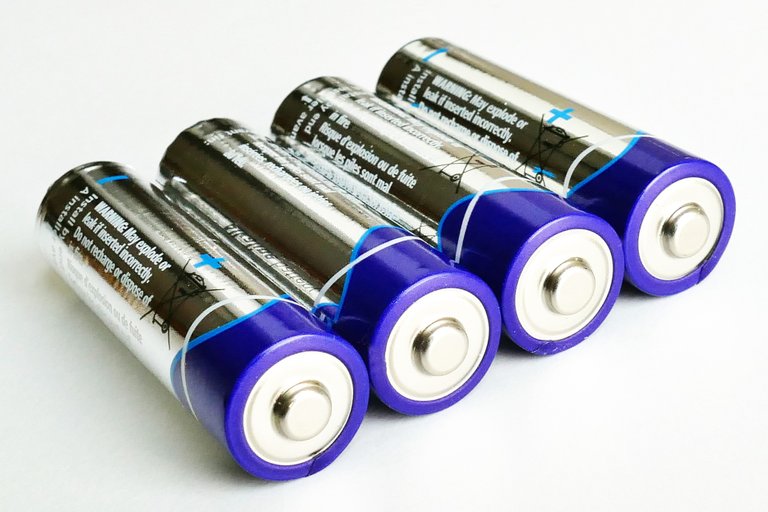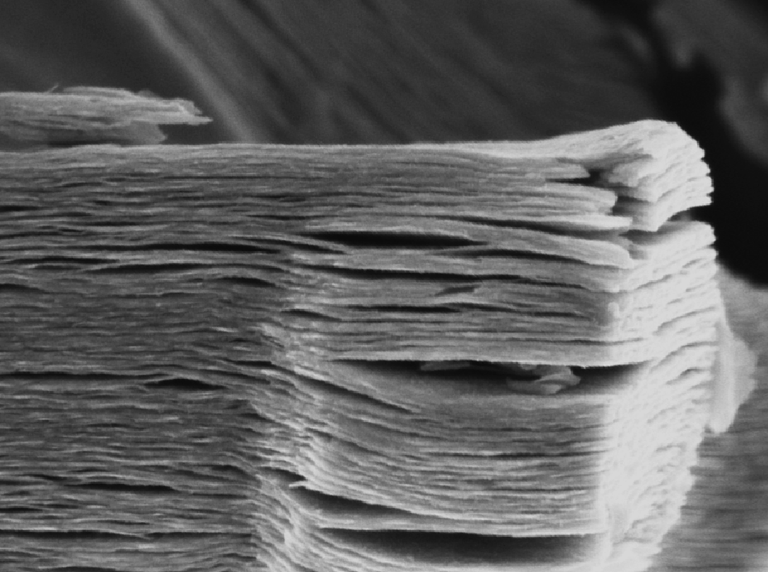
Source: Pixabay
A team of researchers at the University of Drexel have designed a new type of material that could change the batteries as we know for good. The nanomaterial is called MXene, properties of this material allow ions to move faster throug the battery. Because of this charging cycles take minutes instead of hours.
MXene is a two dimensional material with the thickness of only 1 nanometer, MXene is light, flexible and does not oxidize. Other materials used in batteries like copper oxidize pretty easily, that is why today's batteries lack durability.
The battery's energy is being created by saving ions into the elektrodes, these ions flow towards elekrodes trough gates and form what the scientists call 'active redoxsites'. The battery's lifespan depands for the most part on the number of gates it holds, more gates means that more ions can flow to the elektrodes thus making it more durable.
.png)
MXene - Source: Wikipedia
MXene is very conductive and optimizes the flow of iones that rushes to the elektrodes by creating paths leading to the gates, those paths are comparable to super highways with multiple lanes. In current batteries the highways have just one lane, that makes a great difference when it comes to the duration of charging cycles.
Sadly enough commercialization of the MXene battery will take up to 3 years, by then the industry may have completely changed. MXene is not the only material with great potential, another promising material is graphene which is not only strong but also very conductive and stable.
Regardless of the kind of materials future batteries will be made out of, they will have a larger autonomy, recharging cycles will be shorter and the odds of them catching fire or exploding will significanlty been reduced. The 21st century looks bright for the small lightweight battery industry.
Thanks for reading,
Funcore
I find this interesting to think of how batteries in the very near future will change. I imagine this may end up going the same direction as computer transistors and the power of batteries will begin to grow exponentially. I can see a time within 20 years where (given the assumption that big corporations don't use stall tactics) battery power could be woven into fabric and recharged by the very molecules in the air.
I can't wait to see how power output changes.